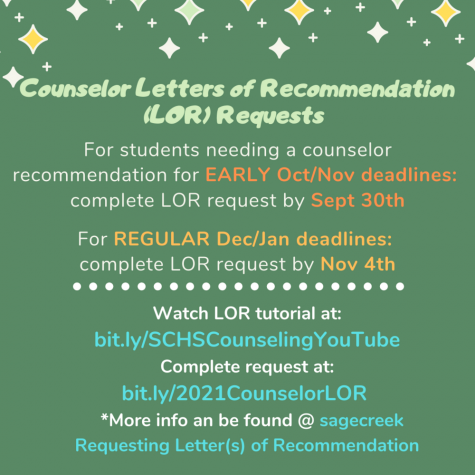The Guide to Virtual College Resources: Navigating the College Application Process This Year
Applying to College in the Time of Online School May Seem Daunting, However, the Virtual Resources Added This Year Add a Great Advantage in Facilitating the College Application Process.
Photo courtesy of UCLA Newsroom
UCLA, one of the many colleges with a change in test-policy, witnesses the great impact of the pandemic. The college application process for the admissions cycle of 2021 has shifted dramatically in terms of requirements and the resources outsourced to prospective students.
Oct 12, 2020
College applications can come off as a bit intimidating when first approaching the subject, but with the great number of virtual resources added this year, students have the ability to gain insight into the process as a whole and information on each individual school more than ever before.
Cataloged below are important pieces of information regarding the college application process this year and links to various helpful resources are embedded to guide students through key steps in the process.
Curating Your List of Schools:
Prior to this year, the process of composing a list of schools to apply to would consist of touring schools in person and doing research on your own time. Now, there are a variety of resources that have prospered from the shift to all-things-online that you can take advantage of without having to leave your bedroom.
Virtual Events
Virtual campus tours and information sessions are truly invaluable additions to the list of ways you can familiarize yourself with the post-secondary education options. Not only are you given the ability to learn general information about almost any school out there, but you can also see it for yourself in a 3D perspective on many of the schools’ websites.
To access these resources, simply look up the name of the college that’s on your mind following with “virtual tour” or “virtual information session” and the first link that pops up will most likely lead you to that exact section of the schools’ website. Once you come across the opportunity to attend either a tour or information session, you have the ability to choose which date you wish to attend the event; the information sessions typically run multiple times a week.
To register for the event, you are required to plug in various bits of your personal information: name, school title, grade level, etc.—it takes less than a minute to do so. The events normally run for 45 minutes to one hour, making it flexible for you to attend events at the multiple schools you’re interested in throughout the week without facing a schedule conflict.
Chats With Students
Additionally, various colleges run chats with students that you simply register for through the website when looking up “virtual events” or “chat with a student” at that particular school. This specific event provides you with the opportunity to chat with a student at the school, and gain insight into their experiences and perspective on each aspect of the institution.
Not every school offers this option, but if you come across the opportunity on the website of a school that entices you, definitely take advantage of it, as it conveys demonstrated interest as well as provides you with greater insight into the opportunities available at the school.
Acquire Insight Through Videos
Believe it or not, Youtube is incredibly helpful when it comes to learning more about the opinions that students who attend the institution have about the school, and vicariously experiencing the social life and experiences of its students. Additionally, it’s a great resource to gain insight into the actual college application process as a whole. Youtubers such as Dyllen Nellis, The Kath Path, and Iris Fu provide amazing advice regarding the college application process.
Lastly, be sure to consider your financial situation when applying to colleges. Primarily, request for fee waivers if you are applying to a great number of colleges whose applications are costly—some have no fee while others can cost around $75, more or less. When taking a wider perspective on the application process, know your financial status, and have a solid understanding of the affordability in applying to schools prior to investing in them. Research the tuition cost at each college you intend to apply to, and be sure to have conversations with your parents about the numbers in order to truly understand what’s available to you.

Test Optional
The college application process has been known for its association with the submission of standardized test scores in the past, however, this year brings a dramatic change to the process, at least temporarily: due to the circumstances of this year, many colleges now give students the option to decide whether or not to submit test scores. These changes apply selectively to the class of 2021 for the majority, but the other fraction of schools have made the alteration for the test-optional policy to extend to a select group of future classes or have eliminated the requirement permanently.
When a college states they have gone test-optional, they mean it is truly optional to submit your scores. They’re not deceiving you in any manner; it is your personal decision to choose whether or not to submit your scores. Many schools have highlighted this fact in the information sessions they have held as well as on their website, one of them being Tulane University.
“If the applicant feels that their SAT or ACT score accurately reflects their academic aptitude, Tulane welcomes them to submit their scores,” Satyajit Dattagupta, vice president of enrollment management and dean of admission at Tulane, said. “If, on the other hand, an applicant feels that their score does not reflect their academic aptitude, there will be no penalty for not submitting their score.”
The UC system has also been radically impacted in terms of its change in test policy.
According to Forbes, “Once it was clear that the pandemic was making testing very difficult, three U.C. campuses, including Berkeley, Santa Cruz and Irvine, decided they would adopt the test-blind policy immediately.”
On September 1, a state court “issued a preliminary injunction in a nine-month-old suit challenging U.C.’s use of the SAT and ACT. The ruling, by a judge in Alameda County, notes that the pandemic has restricted the ability of students to take the exams.”
While the ruling was made, the legal process in keeping the ruling upheld is not entirely complete. Once it is finalized in the fall of 2021, if the ruling remains upheld, the admissions process this year for the UC schools will be entirely test-blind.
Aside from that, the list of colleges that have gone test optional, with clarification regarding how long the requirement has been lifted for, can be found here.
Virtual Application Workshops
In addition to there being virtual tours and information sessions offered by universities, various schools are additionally offering workshops to facilitate the application process. Some of these schools include the University of Pennsylvania—which also provides guides to help you narrow down your list of schools, decisions for majors, and deadline tracking— UC Berkeley, UC Santa Barbara, Tulane University, and more. Keep in mind that these workshops are not school-specific: They provide you with universal information relative to the application process as a whole. If the workshop is school-specific, it will be stated so.
These events often fill up fast during the registration process due to a capacity being set on the number of people allowed onto a Zoom webinar, therefore, sign up for the event as soon as possible.
Each workshop has a specific focus, whether that may be guiding you through the activities section on the Common App or UC Application or assisting you in mapping out your college essays or personal insight questions. These workshops tend to be advertised through emails sent out by the schools if you’re on their newsletter or can be found by looking up the name of the school with “application workshop” following. These workshops are a great way to propel yourself to become more prepared to navigate your college applications.
Virtual Interviews
Interviews have always been a commonality to be offered at various schools in the application process, typically in an in-person setting or over Skype or the phone, although it is not an opportunity offered at every institution. They vary from being conducted by an alumni of the school, an admissions officer or a student representative from the school.
Virtual interviews this year have already begun being offered at various institutions such as Babson College, Tulane University, Barnard College, etc. To find out if the schools on your list are offering them right now or after you submit your application, simply look it up.
College interviews are normally conducted to build relationships with a representative from the school, and for whoever may be interviewing you to get a feel for whether or not you’ll fit in at their school. They typically don’t play a huge role in the admissions process, but the impact can be in the form of your interviewer leaving a gracious note about you to the admissions officers, and it can be a great way to attempt to get off the waitlist at the school if you run into that situation.
There is a standard model for college interviews that you can easily prepare to approach by knowing the gist of how they typically go. No matter which institution is running the interview, it will typically go as such: you will greet one another at the start, they introduce their affiliation with the school, and they’ll go on to ask you about yourself, your extracurriculars, any leadership roles you’ve portrayed, and most importantly: “Why do you want to go to our school?” That is the big question you have to be prepared to answer. That goes to say: do your research and practice marketing yourself based off of your interests and accomplishments in an expressive and authentic manner.
Virtual School Visits and Resources at Sage Creek
Not only are there outside resources available to take advantage of, but the counseling department at Sage Creek also provides assistance in hosting virtual school visits.
These visits can be discovered through Naviance, or through the weekly counseling LoopMails that have been sent out since the beginning of the school year, titled: “SCHS Seniors: Colleges, Careers, Scholarships, and more.” An average of two school visits take place every weekday, and the schools on the list are compiled from both in-state and out-of-state.
Also found in the same LoopMail sent out, there is a list of scholarships that you can look into with deadlines that tend to approach around the same time as the deadlines of college applications.
Letter of Recommendation

While the UC and CSU schools don’t require letters of recommendation, many other universities do. The number required can vary from being one letter to three letters; it depends on the school you’re applying to, so do you research. It’s recommended that you obtain a letter from teachers you had in your sophomore or junior year that you feel know you best and can qualify your personal achievements and work ethic most accurately. Oftentimes, you are required to submit a letter of recommendation from your counselor as well.
“For students that need to request a counselor letter of recommendation for applications due between now and November, you must submit your request by September 30th,” Mrs. Yates highlights. “All other requests for later application deadlines must be submitted by November 4th.”
Check out this video to gain insight into the step-by-step process of requesting a letter of recommendation.
Deadlines:
When you approach the Common Application—if you do—you’ll need to be aware of the deadlines that you have to choose from.
Early Decision
Early Decision, a.k.a ‘ED,’ is binding. This means that you are required to submit your application at an earlier deadline (which varies for each college), and you receive the decision at an earlier point in the year. If you do get in, you will be legally obligated to attend the school. You can only apply to one school under Early Decision.
It is extremely important to know your financial situation when considering this deadline because if you choose to apply under it, you will be unable to compare your financial aid offers from different schools. If your financial aid offer from the school you ‘ED’ to isn’t feasible for your family, it poses a huge problem.
Early Action
Early Action comes in two forms: Early Action I and Early Action I and II. Early Action is when you apply to a school under an earlier deadline, but one that is not legally binding. You may apply to multiple schools under Early Action.
Not every school offers Early Action, which you will notice when selecting the deadline on the Common App or when researching the school. When a school offers Early Action I and Early Action II, it means that there are two earlier deadlines that come before Regular Decision that you can choose from, aside from Early Decision.
Restrictive Early Action
Early Action but with a catch, essentially. There are restrictions that require you to agree to only apply to that specific school during the Early Action time frame: you can’t apply to any other school under Early Action if you select the Restrictive Early Action deadline.
Rolling Admissions
Colleges that use rolling admissions evaluate applications as they are received rather than after a certain deadline. This means that you should apply to the college early on before the spots fill up.
How to Discover the Weight of Each Requirement
To determine whether a school values demonstrated interest, and how worthy the institution finds your essays, activities, geographical location, etc., simply look up the name of the school with “common data set” following.
One of the top links will take you to a page where you’ll either come across a variety of years worth of common data sets, or the most recent one, which would be 2019-2020. The common data set document breaks down the statistics behind the class that was admitted that year, and every component that was taken into consideration in the admissions process ranked from ‘extremely important’ to ‘not considered.’
This won’t necessarily give you the secret recipe to getting into the school, but it will give you a better idea of what you should expect them to evaluate the heaviest when they come across your name in the pile.






